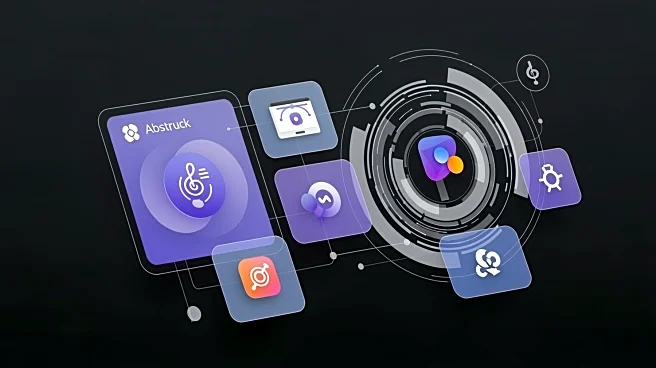What's Happening?
OpenAI has introduced new app integrations for ChatGPT, allowing users to connect their accounts with popular services like Spotify, Canva, and Booking.com. This development enables users to perform tasks
such as creating personalized playlists, designing visual content, and booking hotels directly through ChatGPT. The integration process involves logging into ChatGPT, selecting the desired app, and granting necessary permissions. While these integrations offer convenience, they also raise privacy concerns as users must share app data with ChatGPT. OpenAI plans to expand these integrations further, with additional partners like DoorDash and Uber expected to join later in the year.
Why It's Important?
The expansion of ChatGPT's capabilities through app integrations represents a significant step in enhancing user experience and functionality. By allowing seamless interaction with various services, OpenAI is positioning ChatGPT as a versatile tool for both personal and professional use. However, the requirement for data sharing highlights ongoing privacy concerns in the digital age. Users must weigh the benefits of convenience against potential risks to their personal information. As more companies integrate with ChatGPT, the platform could become a central hub for managing multiple aspects of daily life, influencing how people interact with technology.
What's Next?
As OpenAI continues to roll out new integrations, the company will likely focus on addressing privacy concerns and ensuring secure data handling. The success of these integrations could lead to increased adoption of ChatGPT across different sectors, potentially driving innovation in how AI assistants are used. Future developments may include more personalized and context-aware interactions, as well as expanded functionality to cover a broader range of services. Stakeholders, including users and privacy advocates, will be closely monitoring these advancements to ensure that user data is protected.









